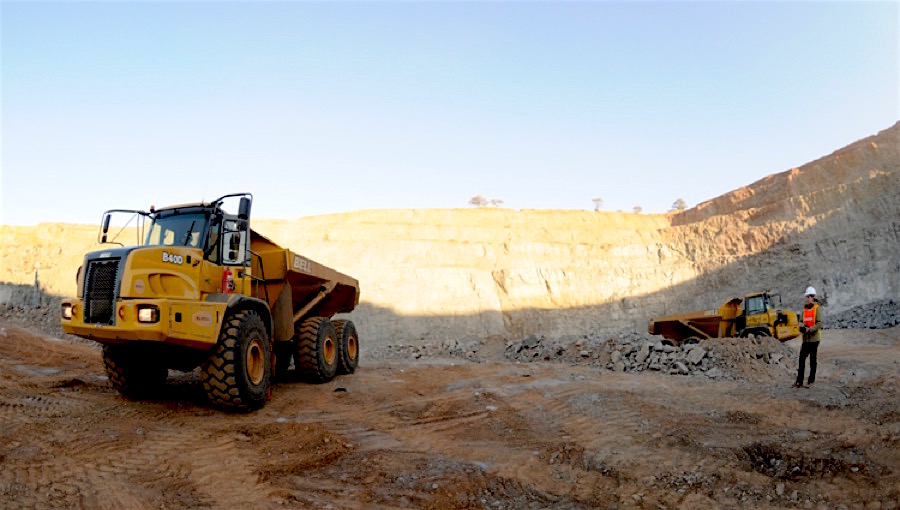Harmony Gold to boost output gains after pandemic hit

Harmony Gold Mining Co. is looking to follow its Johannesburg-based rivals in expanding elsewhere in Africa as opportunities dwindle in its home country.
South Africa’s top gold producer could also consider investing in Papua New Guinea — where it already owns assets — and Australia, Chief Executive Officer Peter Steenkamp said in an interview on Tuesday. The appetite for expansion overseas comes as Harmony completes a $300 million deal to buy AngloGold Ashanti Ltd.’s last mines in South Africa.
“We are actually in the process of scanning the environment again,” Steenkamp said. “We have always had a dream to go into Africa, but there is nothing concrete at the moment.”
South Africa’s gold industry has dwindled to less than a fifth of its peak as mines extending miles underground become expensive and dangerous. That’s pushed AngloGold and Gold Fields Ltd., which still has one operation in South Africa, to look for investment opportunities from Ghana and Latin America to Australia.
While Steenkamp said African expansion has been on the cards for some time, it would be a departure for a company that’s long used cost-cutting measures to squeeze out profits and extend mine life in its home country. Buying AngloGold’s Mponeng operation, the world’s deepest mine, fits with that strategy and will help boost Harmony’s annual output to more than 1.6 million ounces.
“We take these ore bodies that have got good potential and we develop them, extending the life of mine over the years,” Steenkamp said. “We have the last part of the gold mining industry that is still probably available.”
The AngloGold assets will drive a rebound in output after virus shutdowns and power outages in South Africa cut Harmony’s gold production by 15% in the 12 months through June. The company backed by black billionaire Patrice Motsepe’s African Rainbow Minerals Ltd. has more than doubled in value this year. The shares rose 6.5% in Johannesburg.
Harmony’s loss narrowed to 850 million rand ($51 million) in the year through June, from 2.6 billion rand a year earlier. The translation loss on the Johannesburg-based company’s dollar borrowings jumped ninefold to 967 million rand as the rand weakened.
(By Felix Njini)
More News
{{ commodity.name }}
{{ post.title }}
{{ post.date }}




Comments